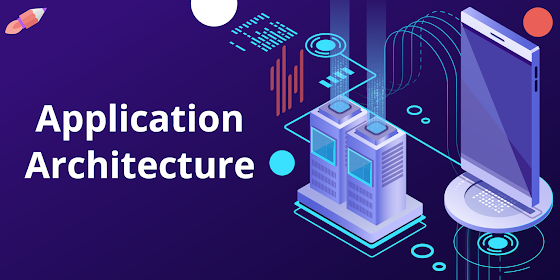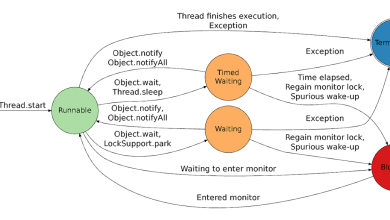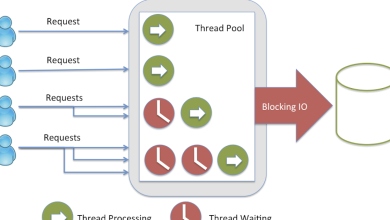The 2024 Software Architect Roadmap
Mostly I explain all the points mentioned in the roadmap in detail but this time, I am going slightly different and also listing the topics which I think is important for a software architect to know and learn.
1. Fundamentals of Software Development
Before diving into software architecture, it is crucial to have a solid understanding of software development principles and practices. Learn about software development methodologies like Agile and Waterfall. Acquire proficiency in programming languages, algorithms, data structures, and object-oriented design.
Understanding the fundamentals of software development lays the groundwork for becoming an effective software architect.
2. System Design Principles
System design principles encompass the core concepts of building robust and scalable software systems. Study principles like separation of concerns, modularity, loose coupling, and high cohesion.
Understand the SOLID principles—Single Responsibility, Open-Closed, Liskov Substitution, Interface Segregation, and Dependency Inversion—which guide the design of maintainable and extensible systems. Mastery of system design principles is crucial for making informed architectural decisions.
3. Architectural Patterns and Styles
Architectural patterns and styles provide proven solutions to common architectural problems. Familiarize yourself with patterns like layered architecture, client-server architecture, microservices architecture, event-driven architecture, and domain-driven design.
Understand the benefits and trade-offs of each pattern and when to apply them.
Mastery of architectural patterns enables you to design systems that are scalable, maintainable, and adaptable.
Here is also a nice Software Design and Architecture Stack from Khalil himself.
4. Software Development Lifecycle
A software architect must have a comprehensive understanding of the software development lifecycle. Learn about different phases, including requirements gathering, analysis, design, implementation, testing, deployment, and maintenance.
Understand the importance of collaboration with stakeholders, project managers, and development teams throughout the lifecycle. Mastery of the software development lifecycle ensures the successful delivery of software projects.
5. Designing for Scalability and Performance
Scalability and performance are crucial considerations for software architects. Learn how to design systems that can handle increasing loads and scale horizontally or vertically. Understand concepts like load balancing, caching, distributed computing, and database optimization.
Mastery of scalability and performance design principles ensures that software systems can handle growing user demands without compromising performance.
6. Security and Compliance Considerations
Software architects must prioritize security and compliance in their designs. Learn about secure coding practices, authentication and authorization mechanisms, data encryption, and secure network communication.
Understand industry standards and regulations like GDPR, HIPAA, or PCI DSS. Mastery of security and compliance considerations ensures the protection of sensitive user data and compliance with legal requirements.
7. Integration and Interoperability
Modern software systems often need to integrate with various external systems and services. Learn about integration patterns, protocols, and technologies such as REST, SOAP, and message queues.
Understand how to design systems that are interoperable with existing legacy systems or third-party services. Mastery of integration and interoperability ensures seamless communication between different components of a software system.
8. Cloud Computing and Infrastructure
Cloud computing has become an integral part of modern software architectures. Familiarize yourself with cloud computing concepts, platforms like Amazon Web Services (AWS), Microsoft Azure, or Google Cloud Platform (GCP), and infrastructure-as-code tools like Terraform or AWS CloudFormation.
Understand how to design cloud-native applications, leverage serverless computing, and ensure high availability and scalability in the cloud.

9. DevOps and Continuous Integration/Continuous Deployment (CI/CD)
Software architects must understand the DevOps culture and practices. Learn about continuous integration/continuous deployment (CI/CD) pipelines, automated testing, and deployment tools like Jenkins or GitLab CI/CD.
Understand the importance of collaboration between development and operations teams to streamline the software delivery process. Mastery of DevOps and CI/CD principles ensures efficient and reliable software releases.
10. Soft Skills and Leadership
Effective communication and leadership skills are essential for software architects. Develop strong interpersonal skills to collaborate with stakeholders, developers, and other team members. Learn how to communicate complex technical concepts to non-technical stakeholders.
Cultivate leadership qualities like decision-making, problem-solving, and team management. Mastery of soft skills allows software architects to effectively guide teams and drive successful software projects.
11. Continuous Learning and Industry Trends
The software industry is constantly evolving, and software architects must stay up to date with the latest trends and technologies. Continuously learn about emerging architectural patterns, tools, and frameworks.
Follow industry thought leaders, read architecture blogs, and participate in conferences and webinars. Embrace continuous learning to expand your knowledge and adapt to the evolving needs of the industry.
12. Data Management and Database Design
Software architects must have a solid understanding of data management and database design. Learn about database concepts like data modeling, normalization, indexing, and query optimization. Understand different types of databases such as relational databases, NoSQL databases, and data warehousing.
Mastery of data management and database design ensures the efficient storage, retrieval, and management of data within software systems.
13. Enterprise Integration and Enterprise Architecture
In enterprise-level systems, integration plays a crucial role. Learn about enterprise integration patterns and technologies like Enterprise Service Bus (ESB), message brokers, and service-oriented architecture (SOA).
Understand enterprise architecture frameworks like TOGAF (The Open Group Architecture Framework) and how to align software architectures with business goals. Mastery of enterprise integration and architecture enables the design of complex and interconnected enterprise systems.
14. Domain-Driven Design (DDD)
Domain-Driven Design (DDD) is an approach that focuses on modeling software systems based on the business domain. Learn about DDD concepts such as bounded contexts, aggregates, value objects, and domain events.
Learn and understand how to identify and define domain models and integrate them into the overall software architecture. Mastery of DDD ensures that software systems align with business requirements and are easy to understand and maintain.



